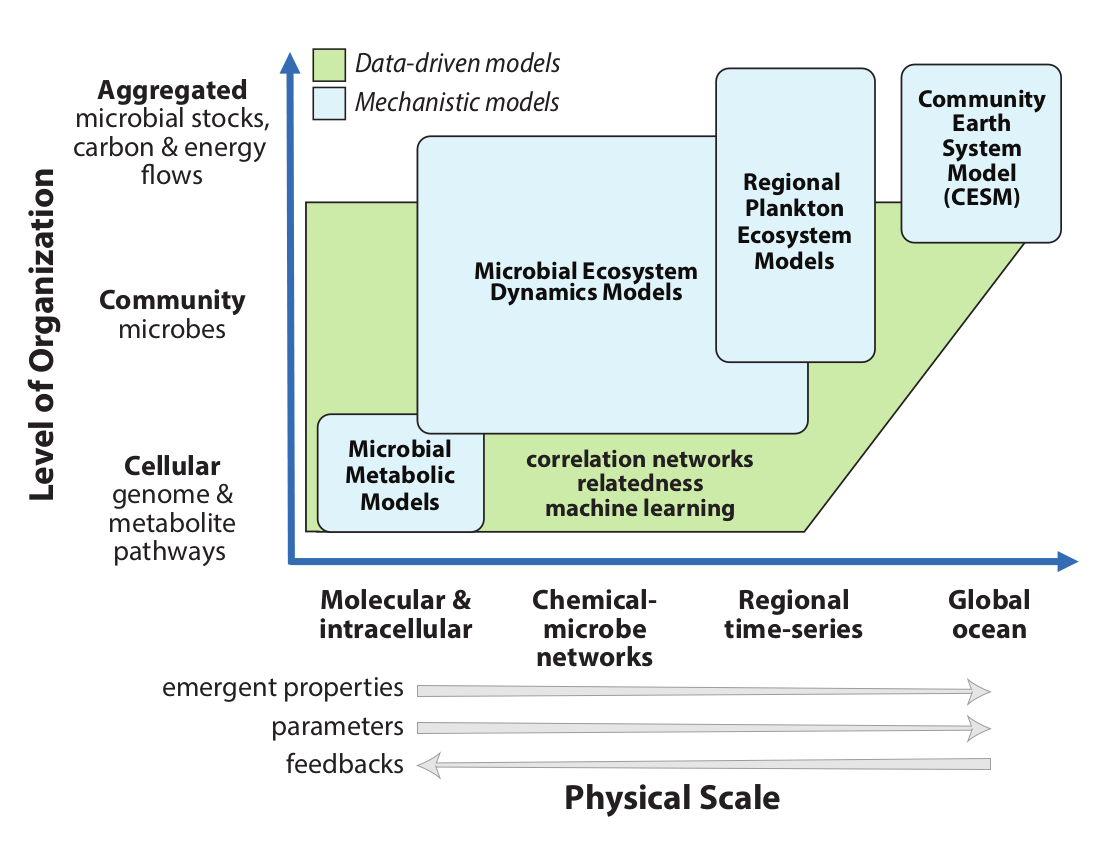C-CoMP Research
Our goal is to resolve major outstanding knowledge gaps at the heart of the global carbon cycle while focusing on the surface ocean carbon flux.
Chemical Currencies of Surface Ocean Microbes
We are identifying the molecules or molecular classes that play critical roles in the flux of carbon and other elements through the surface ocean. To achieve this goal, we are combining strategic chemical identification, focused metabolite annotation, and chemical and biological data integration. To learn more visit the chemical currencies of surface ocean microbes research description.
Rules of the Chemical-Microbial Network
We are exploring governing principles of the chemical-microbial network that regulate the massive transfer of carbon between global reservoirs. To accomplish this, we are combining experiments with model organisms and communities with field observations and network models. To learn more, visit the rules of the chemical-microbial network research description.

Network Sensitivity and Feedbacks on Climate
We are exploring the robustness, resilience, and evolution of surface ocean microbial communities within the context of a changing ocean. We are working to integrate emerging insights through numerical modeling to uncover the principles that control the fate of labile DOC on regional to global scales. To learn more, visit the network sensitivity and feedbacks on climate research description.
Education Research
The C-CoMP team is rounded out by education researchers who are conducting empirical research on ocean science education and research training. Their research examines the impacts of both formal curriculum interventions and research education experiences. Education research activities are framed in terms of relevant learning, motivation, and career development, as well as the logical connections between the goals of each activity, the fidelity of its implementation, and its hypothesized outcomes. Given the aim to diversify the ocean sciences, all education research studies attend to the backgrounds, perspectives, and experiences of individuals involved in educational activities and education research.
Meeting Structure
C-CoMP members collaborate within domain-based working groups and within multidisciplinary project groups that have coalesced around specific deliverables.
Working Groups
Participants in domain-based working groups meet frequently (typically bi-weekly) to discuss research updates, troubleshoot challenges, and work together on specific collaborative projects. Working groups are open to all C-CoMP members.
Multidisciplinary Research Project Groups
Participants in multidisciplinary research projects groups work together towards specific tools and discoveries.



